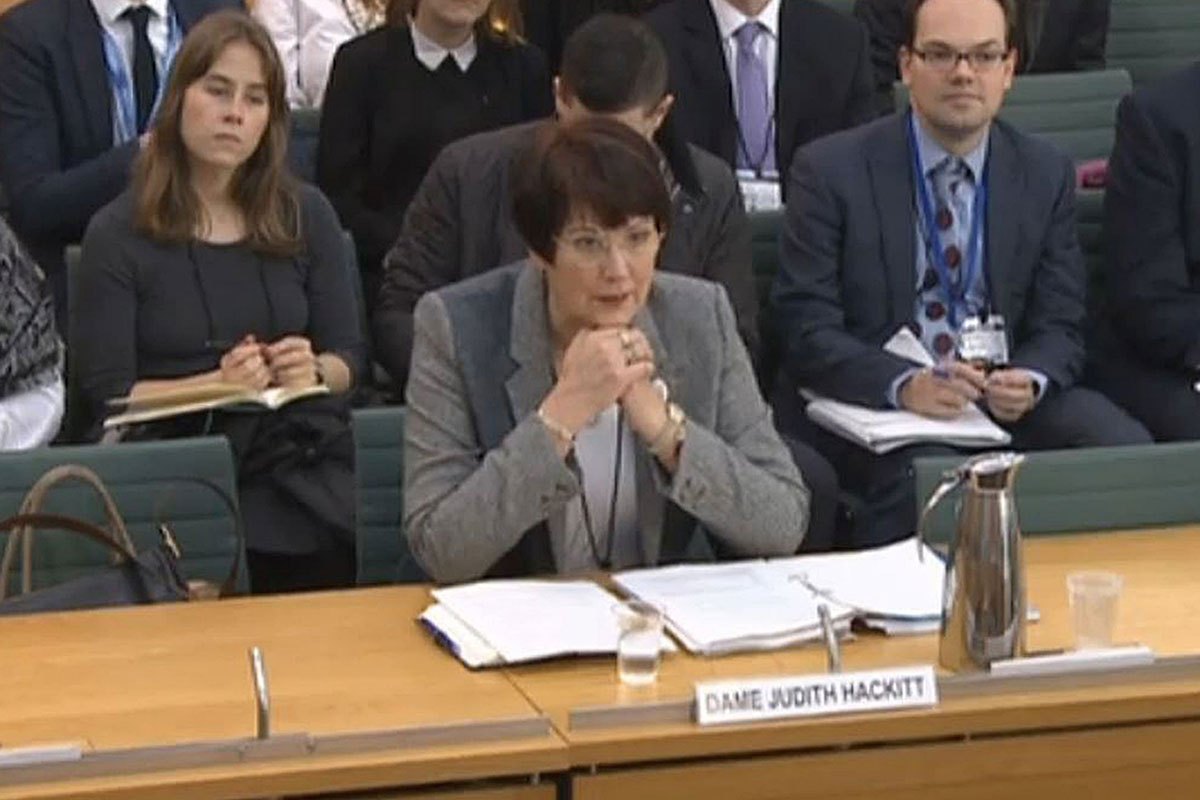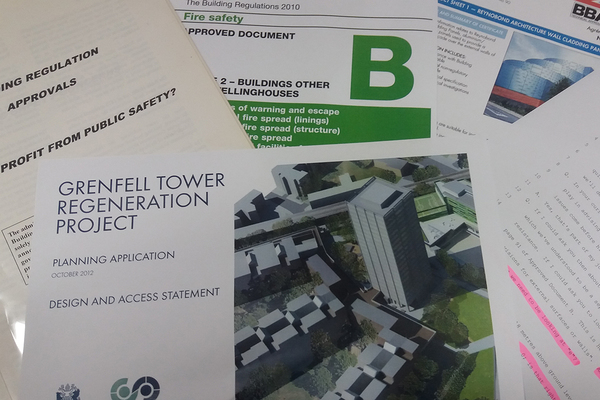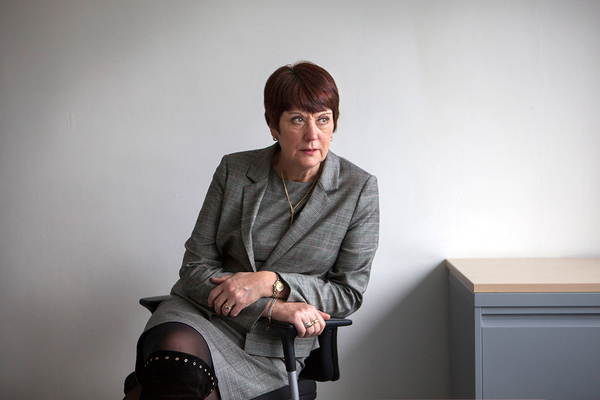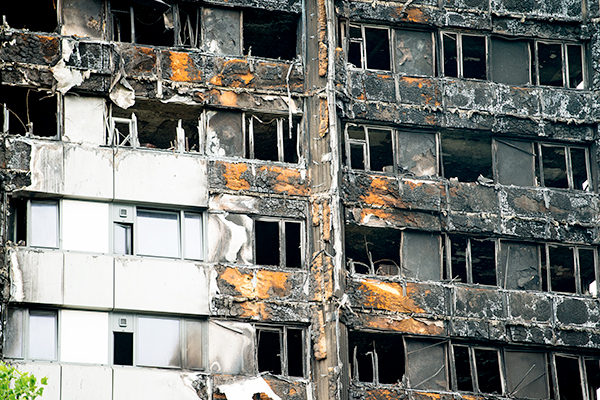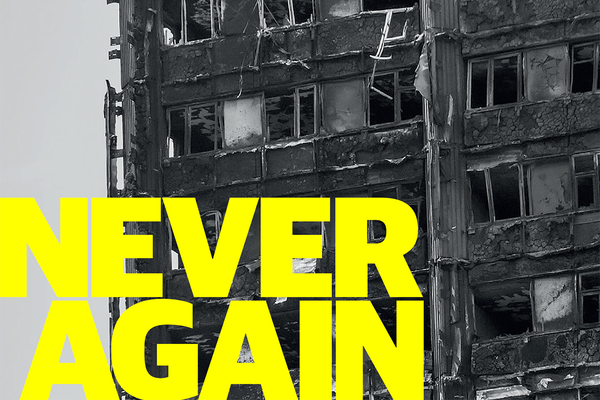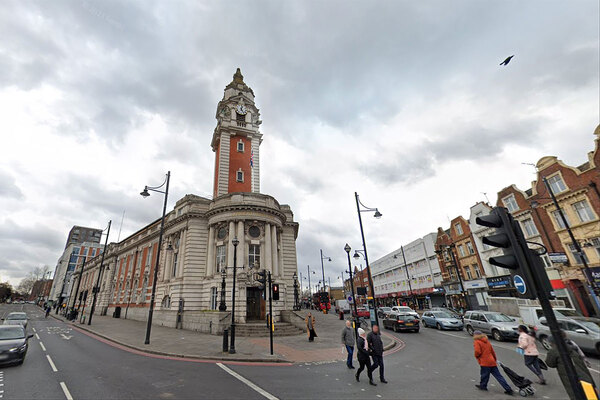You are viewing 1 of your 1 free articles
Hackitt poised to recommend ‘new regulatory system for tower blocks’ in final report
Dame Judith Hackitt is expected to recommend the introduction of a “new regulatory system for tower blocks” in her review of building regulations in the aftermath of the Grenfell Tower disaster, Inside Housing can reveal.
Civil servants have been briefing senior industry figures about the final report’s content ahead of its expected release tomorrow.
Inside Housing understands they have been told to expect a “new regulatory framework for tower blocks”, although the details of what exactly this would entail were not briefed.
Sources also confirmed Inside Housing’s report from last week that the review – set up to examine building regulations in the aftermath of the fire last June, which killed 72 – will not recommend a ban on combustible insulation and cladding, barring an 11th-hour change of heart.
It is understood that, instead, tougher penalties could be introduced if a building’s cladding fails fire safety tests. The Local Government Association has said it will call for another review if the Hackitt Review does not call for a ban on combustible materials.
The report will instead set out a series of recommendations, including giving tower block residents a ‘dedicated person’ to report safety concerns to.
Dame Judith will also recommend a duty holder role be introduced, as previously reported by Inside Housing, who will take responsibility for fire safety in a building, a lobbying call from fire service chiefs.
This duty holder could be given the power to enter people’s flats to check fire safety issues.
Dame Judith is expected to call for a competency framework to be introduced for contractors. Fire safety experts have previously raised concerns about contractors carrying out work in tower blocks without any fire safety training.
Other details about the likely contents of the report briefed to multiple sources this week include:
- An instant reporting system so whistleblowers can report on bad construction practice
- Before a building refurbishment, the types of materials to be used and work to be carried out will have to be made public
- Residents to be given responsibility for fire safety in their buildings. Actions such as leaving rubbish outside flats or refusing officers’ entry to carry out a fire safety check could constitute a breach in the tenancy agreement
- A dedicated person for residents to report building safety concerns to
- Tightening up the use of desktop studies, but the review will not call for a ban
- The Building Research Establishment (BRE) to be tasked with training construction workers on fire safety
- A ‘digital record’ of the construction phases of a building
- The BRE is ‘re-phrasing’ the government guidance published alongside building regulations – Approved Document B
Sources sitting on the review panels have previously warned it would result in “tweaks and small changes” rather than an overhaul of regulations.
Its work has previously been criticised by groups including the Royal Institute of British Architects, which wrote to the government last month warning of the review’s reluctance to ban desktop studies or move towards prescriptive regulation.
That letter said: “We fear that the current set of proposals under consideration overlook simple but critical changes that would provide clarity for professionals and most importantly, would help protect the public.”
The review leaned heavily on the input of various industry bodies, with the working group on building regulations chaired by the Construction Products Association, and the group on safety testing chaired by the Building Research Establishment, which carries out many safety tests.
A Ministry of Housing, Communities and Local Government spokesman said: “Dame Judith Hackitt’s independent review of building regulations and fire safety will be published shortly.”
FULL LIST: HACKITT REVIEW WORKING GROUPS
Working group 1: Golden Thread
Chairs:
Ben Stayte and Hannah Brook
Members:
National Fire Chiefs Council
Local Authority Building Control
Construction Products Association
UIL
National Housing Federation
Health and Safety Executive
Institution of Fire Engineers
Working group 2: Regulations and Guidance
Chair:
Peter Caplehorn, Construction Products Association
Members:
National Fire Chiefs Council
Local Authority Building Council
Fire Industry Association
Building Research Establishment
Health and Safety Executive
Build UK
Chartered Institute of Building Services Engineers
Other groups
Working Group 1: Construction and Design
Chair:
Rachel White, Institute for Civil Engineers
Members:
Association of Consultant Approved Inspectors
Build UK
Local Authority Building Control
National Fire Chiefs Council
Institution of Fire Engineers
Royal Institute of British Architects
Health and Safety Executive
Construction Leadership Council
National House Building Council
Royal Institution of Chartered Surveyors
Working Group 2: Procurement
Chair:
Paul Nash, Chartered Institute of Building
Members:
Telford Homes
Kier Living
Construction Industry Council
Local Government Association
Home Builders Federation
Working Group 2: Occupation and Maintenance
Chair:
Nick Coombe, National Fire Chiefs Council
Members:
Association of Residential Managing Agents
National Fire Chiefs Council
British Institute of Facilities Management
Royal Institution of Chartered Surveyors
Health and Safety Executive
Leasehold Advisory Service
Local Government Association
Association of British Insurers
Working Group 4: Competence
Chair:
Graham Watts, Construction Industry Council
Members:
Royal Institution of Chartered Surveyors
Construction Industry Council Approved Inspector Register
Engineering Council
Fire Industry Association
Local Authority Building Control
Royal Institute of British Architects
National Fire Chiefs Council
Fire Protection Association
University of Edinburgh, School of Engineering
Institution of Fire Engineers
Working Group 5: Residents’ Voice
Chair:
Darren Hartley, TAROE
Members
Association of Residential Managing Agents
British Property Federation
Camden Leaseholders’ Forum, nominated by LEASE
Confederation of Co-operative Housing
Fire Industry Association
National Federation of Tenant Management Organisations
Optivo Homes, nominated by National Housing Federation
Shelter
Tenant Participation Advisory Service
Working Group 6: Quality Assurance and Products
Chair:
Dr Debbie Smith, Building Research Establishment
Members
Construction Products Association
British Standards Institution
United Kingdom Accreditation Service
British Board of Agrement
Fire Protection Association
Fire Industry Association
Centre for Fire and Hazards Science, University of Central Lancashire
National Fire Chiefs Council
Institution of Fire Engineers
What is the Hackitt Review?
Following the Grenfell Fire in June, which killed 71 people, questions were raised about the part that building regulations played in the tragedy.
On 28 July, Amber Rudd, the home secretary, and Sajid Javid, the communities secretary, commissioned Dame Judith Hackitt to conduct a review into building regulations and fire safety.
The review, which is being carried out independently of government, has a particular focus on regulations as they apply to high-rise residential buildings.
The review's interim findings were reported in December 2017.
Who is Dame Judith Hackitt?
Dame Judith is an engineer with extensive experience in the chemicals industry and former civil servant. She formerly chaired watchdog the Health and Safety Executive and is currently chair of manufacturing trade body EEF.
In 2006, she was awarded the Commander of the Order of the British Empire (CBE) for services to health and safety and in 2016 was named Dame Commander of the Order of the British Empire (DBE).
Never Again campaign
In the days following the Grenfell Tower fire on 14 June 2017, Inside Housing launched the Never Again campaign to call for immediate action to implement the learning from the Lakanal House fire, and a commitment to act – without delay – on learning from the Grenfell Tower tragedy as it becomes available.
One year on, we have extended the campaign asks in the light of information that has emerged since.
Here are our updated asks:
GOVERNMENT
- Act on the recommendations from Dame Judith Hackitt’s review of building regulations to tower blocks of 18m and higher. Commit to producing a timetable for implementation by autumn 2018, setting out how recommendations that don’t require legislative change can be taken forward without delay
- Follow through on commitments to fully ban combustible materials on high-rise buildings
- Unequivocally ban desktop studies
- Review recommendations and advice given to ministers after the Lakanal House fire and implement necessary changes
- Publish details of all tower blocks with dangerous cladding, insulation and/or external panels and commit to a timeline for remedial works. Provide necessary guidance to landlords to ensure that removal work can begin on all affected private and social residential blocks by the end of 2018. Complete quarterly follow-up checks to ensure that remedial work is completed to the required standard. Checks should not cease until all work is completed.
- Stand by the prime minister’s commitment to fully fund the removal of dangerous cladding
- Fund the retrofitting of sprinkler systems in all tower blocks across the UK (except where there are specific structural reasons not to do so)
- Explore options for requiring remedial works on affected private sector residential tower blocks
LOCAL GOVERNMENT
- Take immediate action to identify privately owned residential tower blocks so that cladding and external panels can be checked
LANDLORDS
- Publish details of the combinations of insulations and cladding materials for all high rise blocks
- Commit to ensuring that removal work begins on all blocks with dangerous materials by the end of 2018 upon receipt of guidance from government
- Publish current fire risk assessments for all high rise blocks (the Information Commissioner has required councils to publish and recommended that housing associations should do the same). Work with peers to share learning from assessments and improve and clarify the risk assessment model.
- Commit to renewing assessments annually and after major repair or cladding work is carried out. Ensure assessments consider the external features of blocks. Always use an appropriate, qualified expert to conduct assessments.
- Review and update evacuation policies and ‘stay put’ advice in the light of risk assessments, and communicate clearly to residents
- Adopt Dame Judith Hackitt’s recommended approach for listening to and addressing tenants’ concerns, with immediate effect
CURRENT SIGNATORIES:
- Chartered Institute of Housing
- G15
- National Federation of ALMOs
- National Housing Federation
- Placeshapers
Related stories
